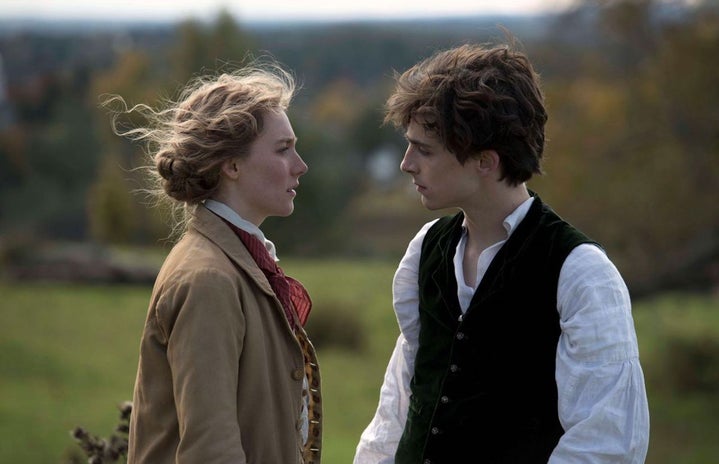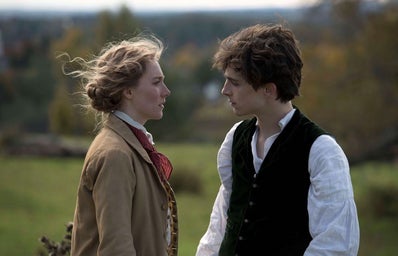Little Women is globally adored, championing honest and unyielding sisterhood and sorority, and offering beautiful insights into the female experience. But more than this, it is admired for its barrier-breaking feminism, with headstrong and boyish ‘Jo’ March offering a trailblazing account of successful female literary aspirations, and serving as a reminder that a man need not be the ultimate ‘goal.’
When considering Little Women through a feminist lens, our focus is naturally drawn to Jo. For instance, we envision Jo’s rejection of Laurie’s love confession – for its time, an unparalleled show of her agency, self-assurance, and liberation.
However, the brilliance of Little Women’s feminism lies in the summation of the March sisters, with each palpably different girl lending to a distinct and critical feminist insight.
We often condemn Beth as childish, meek, and forgetful. We may cry at her death but tend to overlook the importance of her relentlessly kind heart. Her unwavering maintenance of girlhood serves as a strong reminder to all young women not to chase it away. In a society synonymizing ‘teenage girl’ with immaturity and ‘silliness’ such as ‘girl math’ or ‘girl dinner, ’I implore each of us to admire Beth’s unabashed youthfulness.
Equally, we can explore Amy’s cynicism and her relentless pursuit of love that aligns with her goals of security. Whilst some critique her calculated plays, she epitomizes women’s capability to ‘do it all’: satisfying her familial duty and chasing true love.
Yet, the sister we tend to neglect, and cast as the anti-feminist ‘trad wife,’ is Meg. Yes, I concede that Meg’s storyline is the least exciting of the four: she is no pioneer with career ambitions, nor a powerful literary symbol. But it is precisely this somewhat ‘mundane’ femininity, and wholesome yet unyielding desire for a family – despite her sister’s brutal critiques of such a traditional path – that renders Meg arguably the most powerful lesson within the text.
In the 2019 film adaptation, Jo, on the morning of Meg’s wedding, suggests that the two of them escape, lamenting the loss of “childhood” that will accompany this grievous transition. Brilliantly, sheepish Meg reminds her sister “just because my dreams are different than yours doesn’t mean they’re unimportant.”
There, within her unnecessarily embarrassed justification, Meg outlines the true feminist message of the novel: feminism is not a girl behaving boyishly, or rejecting love, family, and dresses, but a girl’s right to agency and choice.
Meg reminds us that our understanding of feminism has perhaps been warped with time. In an era of sexual liberation and ‘girlbossing,’ women have been confronted with the narrative that being a ‘true feminist’ requires rejecting any form of reliance on men.
Whilst female independence, monetary success, and the choice not to marry or have a family should be championed and celebrated, the same treatment should be endowed to the Nara Smith’s of the world. Women, above all, should be encouraged to have absolute control over their life choices, void of pressures that predetermine what their choices ought to be.
Just as Meg teaches Jo, we must learn to celebrate all avenues of ‘being a woman,’ regardless of whether or not they fit our agenda and preferences.


